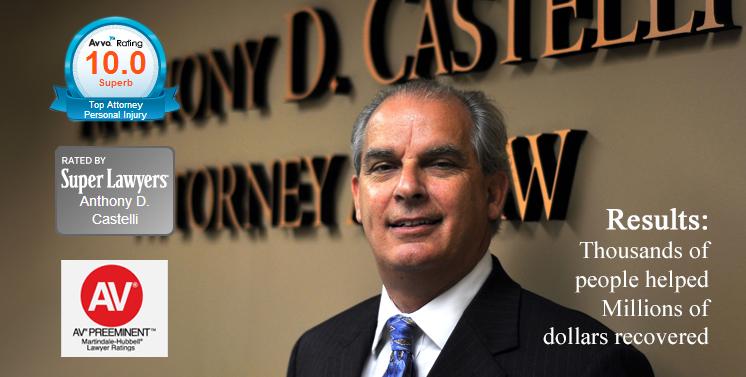Posted: June 3, 2024
Top 10 Questions Personal Injury Victims Ask Their Lawyers: A Guide to Understanding Your Case
Being injured in an accident can be a physically, emotionally, and financially overwhelming experience. Medical bills pile up, lost wages take a toll, and the path forward can seem unclear. One of the most important steps you can take is to consult with a personal injury lawyer. Here, we'll explore the top ten questions personal injury victims typically ask their lawyers, providing insightful answers based on legal principles.
1. Do I Have a Case?
This is a crucial first question. To determine if you have a viable personal injury case, your lawyer will assess several factors, including:
-
Negligence: Did another party's carelessness or failure to act reasonably cause your accident and injuries? This can involve analyzing police reports, witness statements, and accident scene details. (American Bar Association, https://www.americanbar.org/)
-
Severity of Injuries: The extent of your injuries significantly impacts your case's value. Medical records documenting diagnosis, treatment plans, and prognosis are key evidence.
-
Damages: Personal injury claims seek compensation for various damages, such as medical expenses, lost wages, pain and suffering, and property damage.
2. What is My Case Worth?
Unfortunately, there's no one-size-fits-all answer. Several factors influence the potential value of your case:
- Severity of Injuries: As mentioned earlier, the seriousness of your injuries directly impacts the value of your claim.
- Expected Recovery: Will your injuries fully heal, or will you face long-term medical needs?
- Lost Wages: How much income have you lost due to the accident?
- Pain and Suffering: The intangible cost of physical and emotional pain is considered.
- Shared Fault: Some states have comparative negligence laws that reduce compensation based on your degree of fault (Cornell University Law School, https://scholarship.law.cornell.edu/cgi/viewcontent.cgi?referer=&httpsredir=1&article=1327&context=clr)
3. How Long Will My Case Take?
Personal injury cases can vary significantly in duration. Factors influencing timeframe include:
- Case Complexity: Straightforward cases might settle quicker, while complex ones requiring extensive investigation or litigation may take longer.
- Severity of Injuries: Cases involving serious injuries requiring ongoing medical treatment may take more time to assess total damages.
- Settlement Negotiations: Negotiations with the at-fault party's insurance company can be lengthy, impacting the overall timeframe.
4. What Are My Out-of-Pocket Expenses?
Hiring a personal injury lawyer often operates on a contingency fee basis. This means the attorney's fees are a percentage of the final settlement you receive, eliminating upfront costs. However, there may be other expenses associated with your case, such as:
- Medical Record Retrieval: Fees for obtaining your medical records from healthcare providers.
- Expert Witness Fees: Costs associated with hiring experts like medical professionals to analyze your injuries and future medical needs.
- Court Filing Fees: If your case goes to court, there may be filing fees associated with the lawsuit.
5. Should I Accept the Insurance Company's Settlement Offer?
Insurance companies often attempt to settle claims quickly and for less than they're truly worth. Your lawyer will advise you on the fairness of a settlement offer based on:
- Total Damages: Does the offer cover all your current and future medical expenses, lost wages, and pain and suffering?
- Severity of Injuries: Is the offer reflective of the long-term impact of your injuries?
- Comparative Fault: If you share fault for the accident, is the offer adjusted accordingly?
6. What Happens if My Case Goes to Trial?
Most personal injury cases settle outside of court. However, if negotiations fail, your lawyer may recommend taking your case to trial. Here's what to expect:
- Discovery: Both sides exchange evidence through depositions, interrogatories, and document requests.
- Pre-Trial Motions: Motions to exclude evidence or dismiss the case can be filed before trial.
- Trial: You and your lawyer will present your case to a judge or jury, who will then issue a verdict on liability and damages.
7. Can I Work with You if I Don't Have Health Insurance?
The lack of health insurance shouldn't deter you from pursuing a personal injury claim. Your lawyer can help you navigate medical bills and explore options like obtaining a medical lien from your healthcare provider, where repayment occurs from your settlement (American Bar Association, https://www.abainsurance.com/).
8. What Should I Do if the Insurance Company Contacts Me Directly?
It's best to avoid speaking directly with the at-fault party's insurance company after an accident. Their primary goal is to minimize their payout.
refer them to your lawyer, who can handle all communication and ensure your rights are protected (American Bar Association, https://www.americanbar.org/).
9. What Happens if the Accident Was Partially My Fault?
Many states follow comparative negligence laws. This means your compensation might be reduced based on your percentage of fault for the accident. For example, if you're found 20% at fault, your total award could be reduced by 20% (Cornell University Law School, https://scholarship.law.cornell.edu/cgi/viewcontent.cgi?referer=&httpsredir=1&article=1327&context=clr). Your lawyer can explain how comparative negligence laws might affect your specific case.
10. How Can I Help My Case?
Here are some things you can do to strengthen your personal injury case:
- Seek Medical Attention: Promptly see a doctor to document your injuries and establish a clear connection between the accident and your medical needs.
- Gather Evidence: Collect any evidence from the accident scene, such as photos, witness information, and police reportt
- Keep Records: Maintain detailed records of all medical bills, lost wages, and other accident-related expenses
By understanding these key questions and taking proactive steps, you can navigate the legal process more effectively after a personal injury. Remember, an experienced personal injury lawyer can be your strongest advocate, working to secure the compensation you deserve.
Anthony Castelli
Cincinnati injury lawyer
10320 Brentmoor La
loveland, Ohio 45140
513-621-2345


